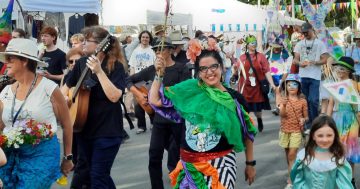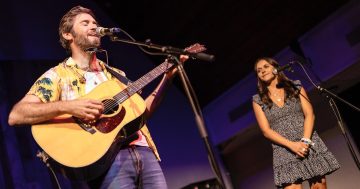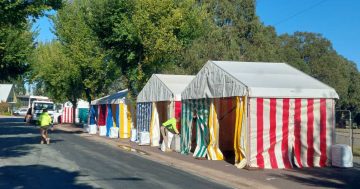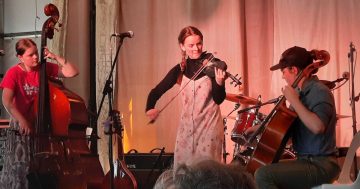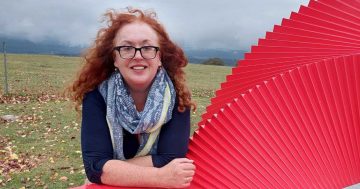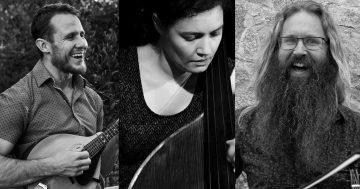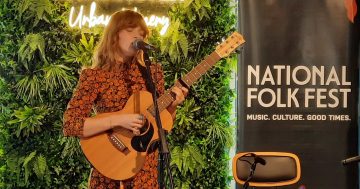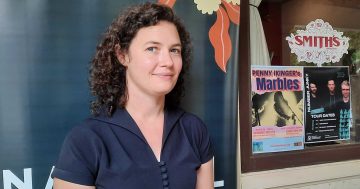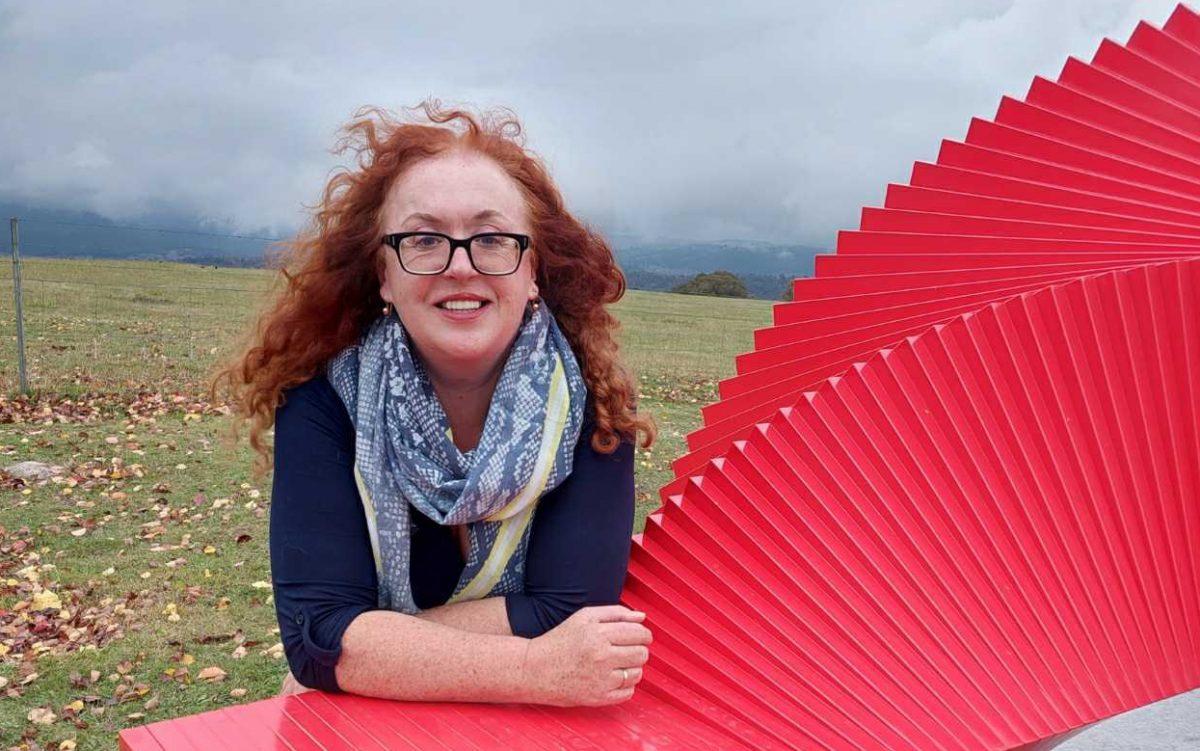
National Folk Festival managing director Heidi Pritchard: “I’ve built a career around building communities and talking to people and helping people magnify their stories.” Photo: Supplied.
New National Folk Festival managing director Heidi Pritchard feels like her entire career has led her to this moment.
Ms Pritchard has just started a three-year term at the helm of the Folk Festival, which she says is ‘back’ after three years of upheaval with two cancelled festivals due to the pandemic and the Katie Noonan experiment that plunged it into an identity crisis and alienated many loyal regulars.
“Twenty years ago, when I skipped through the doors of the Folk Festival wearing all tie-dye clothing and bells on my ankles, I never would have imagined that I’d walk back through the gates as managing director,” she said.
But after 11 years at the National Library, where she worked with Folk Fellows and “half of the folk people in Canberra”, and then a further 11 years at the National Museum of Australia, Ms Pritchard feels more than ready to lead the festival into a new era.
“I’ve built a career around building communities and talking to people and helping people magnify their stories,” she says. “I see my role as making people feel seen, heard and respected.”
Ms Pritchard wants to bring more people into the festival, whether they are the thousands of students who make Canberra home or those from regional and remote areas who may not have had the opportunity to be involved.
“I want them to see themselves in the Folk Festival,” she said.
Ms Pritchard has worked extensively with First Nations people. She admires the impact their artists have had on Australian music, such that she rejects the notion of quotas for the festival to be inclusive, saying they stand in their own right.
“There are really good First Nations artists out there – use them,” she said. “How can we amplify their voice, put them in front of a big audience and put them on a national stage?
“How do we work with local First Nations people, and reflect and give them credit as well?”
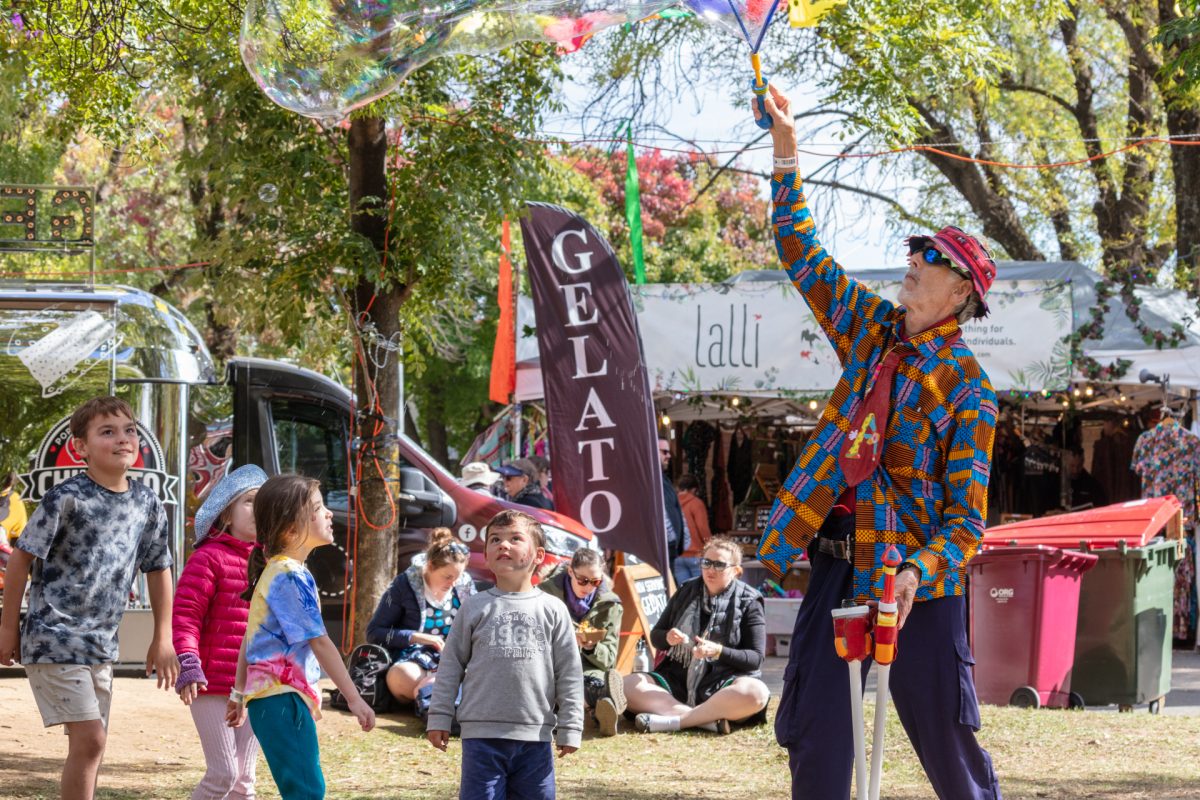
Besides the music, the National Folk Festival at Easter had a real sense of community. Photo: Thomas Lucraft.
Feedback on the ground at Easter confirmed to Ms Pritchard that the work done by interim managing director Chris Grange and his team had put the festival back on track after what she calls the “troubles” of recent times.
“There was this real feeling of renewal and homecoming, they were the words people were using,” she said.
“They recognised the programming, they recognised themselves in the programming.”
She says there was very much a sense of community.
That question of just what is ‘folk’ is still one that remains hard to answer, given everyone has their own ideas and Australia continues to evolve as a multicultural nation but Ms Pritchard knows what it isn’t.
“We’re not an international music festival,” she said.
For her, folk is about the stories we use to tell our history, teach our children and prepare us for what is coming, often expressed in music, and she wants to bring those multitudes of stories into the festival but not become a WOMAD.
It also meant paying respect to the traditions that have brought the Folk Festival to where it is now.
Ms Pritchard says the festival must also live up to its ‘National’ moniker, which should be both an honour and a responsibility.
“You don’t just get to whack ‘National’ in front of something just for the hell of it,” she said.
“It’s our role to work with smaller festivals and give them a hand up if they need it, to work with emerging artists and rural and remote artists, and artists with disabilities.”
One of her first jobs will be to hire an artistic director. The role has just been advertised, but there is already a queue of “really good, high-profile, experienced people with their hands up”.
That person is charged with the difficult and sometimes thankless task of shaping the program and getting the mix of artists right.
Asked whether that will mean more headline artists like Billy Bragg, Ms Pritchard said if the opportunity arises to sign a prominent artist who is also touring at the same time, the festival will jump at it.
The fact is that while not coming cheap, they sell tickets and make it possible to stage a successful festival that can also showcase emerging talent.
Next year, Ms Pritchard will be bringing the Fitzroy back online as a venue and building a community hub with stalls and markets to strengthen that end of the site to take some of the pressure off the Flemington Road end.
This is in response to the venue crush at Easter, which inhibited the traditional “dip in and out” that is usually the mark of the festival.
The new ANU School of Music Youth Stage is also likely to reinforce that area.
Work will be done on the back end of the ticketing system to ensure specific types of tickets for the festival’s core constituency are available.
Ms Pritchard’s three-year term will also give the festival continuity and her the time to do the job properly. And, in any case, she is not one to take on a role lightly.
“I stay, I’m not one of those people who jumps around,” she says. “I can’t work for someone who doesn’t share my ideals and core beliefs. The Museum did and the Library did, and I believe the Folk Festival does as well.”
Her first year will be about consolidation, the second respectful growth, and the third will be the time to “buckle up”.
“But you need one and two to pull three off,” she said.
That respectful growth is about not leaving the core audience behind.
“They have been turning up for us year after year after year, do not throw them out – respect them.”












